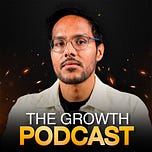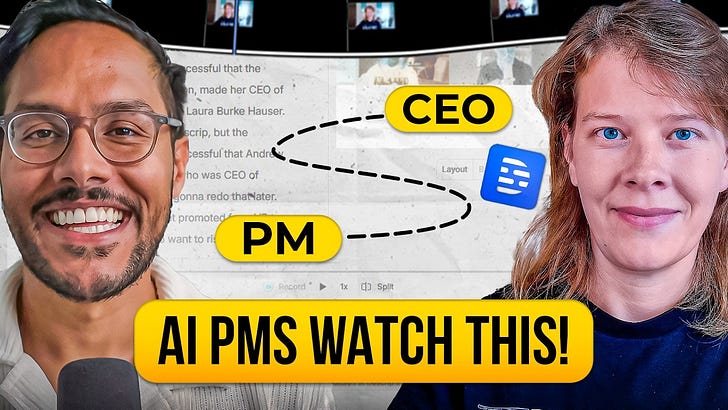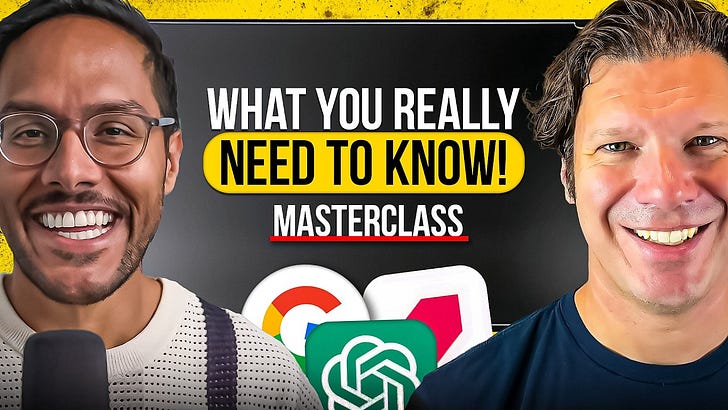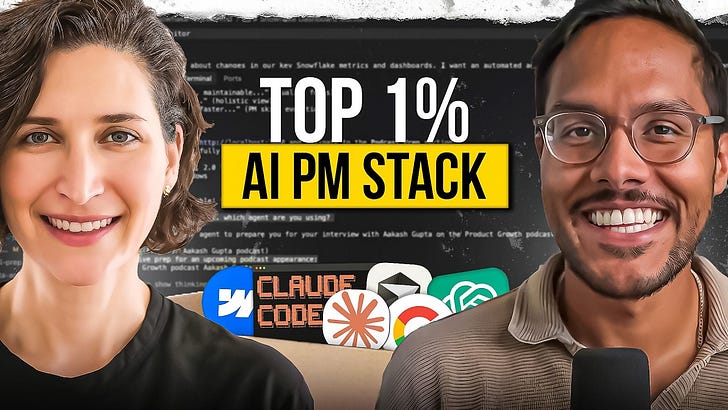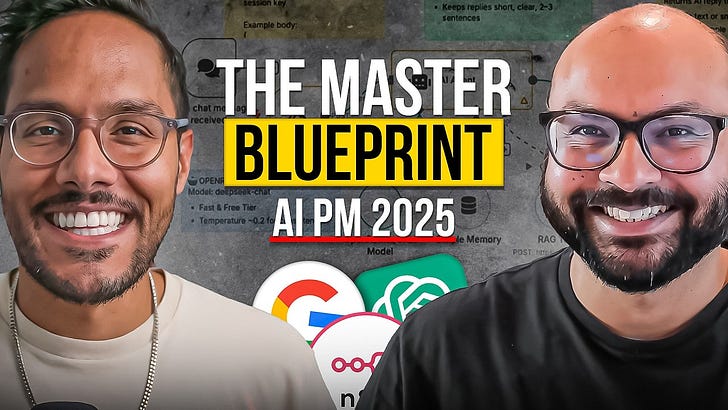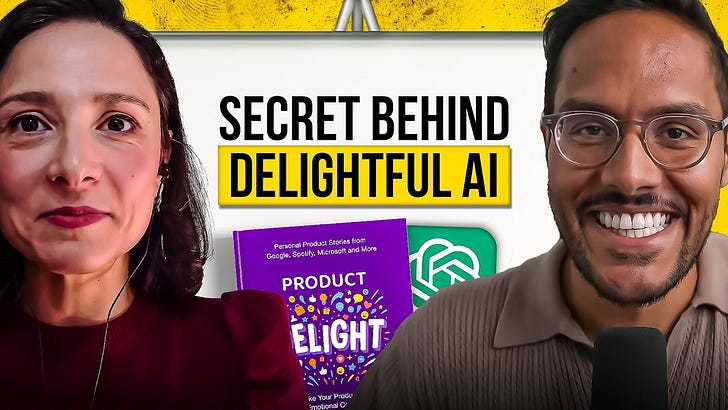Listen now on Apple, Spotify, and YouTube.
Brought to you by:
Attio: The next generation CRM
Dovetail - The Fastest Way to Understand Your Customer
Enterpret - Transform customer feedback into product growth with custom AI
Anvil - The fastest way to build software for automating documents
Most growth teams move too slowly.
In today’s episode, we find the why behind this.
Maria Cuasay breaks down the three pillars of velocity in growth teams and shares her contrarian approach to experimentation, user research, and landing top growth roles.
Maria has been in tech since 2012 as a venture capitalist and has product growth at places like Lyft and OpenCare. Currently, she is the Director of Product Growth at Ancestry.
In today's episode, we cover:
How to Move Fast | 07:34
Growth PMs: Don’t Just Rely on Quantitative Data! | 46:24
Growth Product Leader vs Core Product Leader | 01:05:10
Maria’s Take on Opportunity Solution Trees | 01:14:06
Growth Teams and Partnerships | 01:20:18
Building a Great Referrals System in 2024 | 01:25:42
Lessons on Job Searching | 01:43:12
Here are the Key Takeaways
Here are some of my favorite lessons:
1. How to Move Fast
Three key factors determine a team's velocity:
Culture
Process
Bureaucracy
A leader must consistently:
Push for speed and set clear expectations
Create templatized processes to reduce back-and-forth
Minimize approvers and bureaucratic layers
Hold regular retros to identify and remove bottlenecks
2. The Modern Growth PM: More Than Just Product
Growth PMs need distinct skills beyond traditional product management.
Some of these are marketing-related, like strong copywriting abilities.
Others are more product related, like comfort with rapid experimentation and SQL data analysis capabilities.
The point is: the role is not the same as core PM.
3. Leading from the Front: Growth Leadership Essentials
Effective growth leaders must:
Build credibility through early wins (within first 60 days)
Create a balanced portfolio of quick wins and strategic bets
Foster open communication and idea sharing
Keep pulse on team through individual check-ins
Balance centralized and decentralized decision-making
Leaders should have the ability to manage soft skills and relationships across the organization.
4. The OST Framework: Mapping Problems to Solutions
The Opportunity Solution Trees (OST) framework (which I mentioned in my piece on advanced discovery) helps teams systematically approach growth.
It helps you focus on fully solving 1-2 problems rather than partially addressing many.
Aim at identifying genuine customer problems through research rather than relying on assumptions. (It’s very similar to the approach I describe with OKPS.)
5. Word of Mouth 2.0: Mastering Referral Programs
Maria’s key insights for referral programs:
One-to-one referrals perform better than mass referrals
Altruistic motivations often outperform financial incentives
Giving rewards to referred users works better than rewarding referrers
Program visibility is crucial - integrate throughout the product
Monitor for fraud but don't overreact to edge cases
Success depends on making referrals top-of-mind when natural sharing moments occur.
For more details, listen to the full episode now!
Referenced
Book: "The Sheikh CEO" - about Sheikh Mohammed of Dubai and his growth team approach
Newsletter: Good Better Best" - focused on pricing strategies
Frameworks & Concepts:
Pebbles, Rocks, and Boulders Framework - For categorizing experiment size
Opportunity Solution Tree - For mapping business metrics to customer problems
Two Pizza Rule (Amazon) - Referenced regarding team size and approvers
Rolling Research - Monthly user research program
"Input Goals vs Business Outcomes" model
Where to find Maria
If you prefer to only get newsletter emails, unsubscribe from podcast emails here.
Up Next
We have some great podcasts coming from Shubham Khoker, Henry Schuck, and Vineeth Madhusudanan. I’m so excited to share them with all of you.
In the newsletter, check out this week’s latest piece if you haven’t yet: How to Win the Enterprise: The Ultimate Guide.
And look out for these pieces up next:
How to rock the team matching process
Session Replays: The Missing Link Between Product Development and Customer Success
How Sprig Grows
I think you’re going to love what’s coming up,
Aakash

